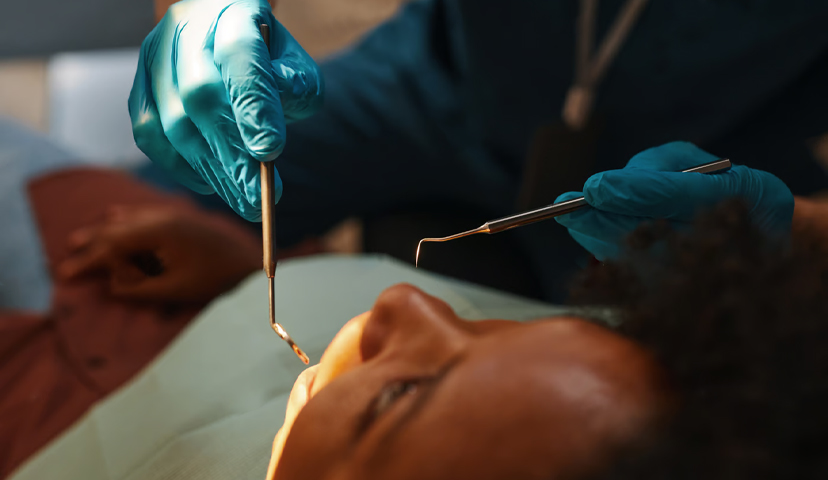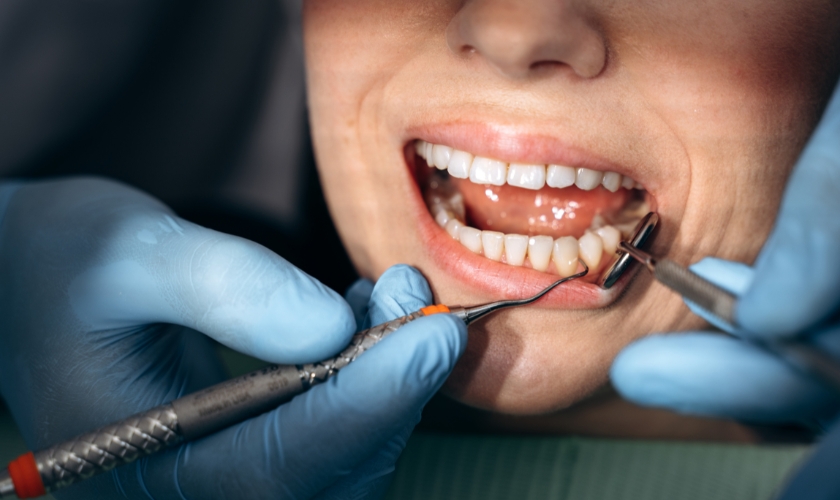Can Poor Dental Hygiene Affect Your Mental Health? Here’s What You Need to Know

Did you know your dental hygiene can affect more than just your smile?
While we often focus on cavities, gum disease, or bad breath, the consequences of poor oral care go much deeper. Surprisingly, neglecting your teeth and gums can take a toll on your mental health.
From self-esteem issues to anxiety and even depression, your oral health and mental well-being are more connected than you might think.
When dental problems arise, they don’t just cause physical discomfort. The visible effects, like missing teeth or persistent bad breath, can trigger embarrassment, social withdrawal, and emotional distress. Over time, this can lead to serious mental health challenges, creating a cycle that’s hard to break.
In this blog, we’ll explore how poor dental hygiene can impact your confidence, mood, and overall mental health. By understanding this connection, you can take simple steps to improve your oral care routine and protect both your smile and your peace of mind. So, let’s dive in and uncover how a healthy mouth contributes to a healthier, happier you.
How Poor Dental Hygiene Can Trigger Mental Health Issues?
Neglecting dental hygiene can lead to visible oral problems that affect more than your physical health. Bad breath, tooth decay, and tooth loss can take a toll on self-esteem, making you overly self-conscious. When you’re unhappy with your smile, it affects how you interact with others.
- Bad breath can cause embarrassment in professional and social settings.
- Missing or decaying teeth may lead to a reluctance to smile or speak.
- Cavities left untreated can progress, impacting both confidence and health.
- Visible dental issues can make individuals avoid social gatherings entirely.
The Emotional Toll of Poor Oral Health
Poor dental hygiene doesn’t just harm your smile; it causes emotional distress. Embarrassment over dental issues often leads to stress and avoidance of social situations. People may isolate themselves rather than face the fear of judgment.
- Stress over appearance can trigger anxiety in professional or personal relationships.
- Avoiding close conversations due to dental concerns causes feelings of loneliness.
- Fear of being judged may prevent people from smiling or speaking openly.
- Social withdrawal increases emotional distress, affecting mental well-being.
The Link Between Dental Hygiene and Anxiety or Depression
Studies show a strong connection between chronic dental problems and mental health conditions like anxiety and depression. The discomfort of persistent oral issues can cause emotional strain, while fear of dental visits may make problems worse.
- Individuals with ongoing dental issues often experience higher stress levels.
- Pain and sensitivity can contribute to fatigue and low mood over time.
- Anxiety over visiting a dentist prevents timely care, worsening oral health.
- Emotional distress increases when dental concerns are left untreated.
Seeking regular care, like a dental cleaning near Lincoln, CA, can help catch small issues before they spiral, easing anxiety and improving both oral and mental health.
The Role of Chronic Pain in Mental Health Decline
Untreated dental issues, such as cavities, infections, and gum disease, often cause persistent pain. Chronic pain can significantly harm mental health, increasing stress and lowering overall quality of life.
- Dental infections can cause throbbing pain that disrupts sleep and daily activities.
- Ongoing discomfort can trigger irritability, anxiety, and emotional exhaustion.
- Chronic oral pain is linked to higher rates of depression and low motivation.
- Stress caused by unmanaged pain worsens overall health and mental well-being.
How Mental Health Affects Dental Hygiene?
Mental health struggles often make it harder to maintain dental hygiene. Conditions like depression or anxiety can sap motivation, leading individuals to neglect oral care habits like brushing, flossing, and regular dental visits.
- Fatigue and lack of energy can cause skipped brushing and flossing routines.
- Anxiety or phobia of dental visits leads to missed appointments.
- Poor nutrition caused by mental health issues contributes to oral decay.
- Individuals may feel overwhelmed and avoid seeking help for dental problems.
If you’re searching for a dental hygienist near me, finding a compassionate professional can help you ease back into an effective oral care routine.
Breaking the Cycle: Improving Both Dental Hygiene and Mental Health
The good news is that improving dental hygiene can also boost mental well-being. By taking small, consistent steps, you can care for your teeth and uplift your confidence.
- Brush twice daily and floss to maintain a healthy smile.
- Schedule regular dental cleanings to prevent severe oral health issues.
- Address dental concerns early to avoid chronic pain and emotional distress.
- Reach out to both a dentist and a mental health professional if needed.
Your oral health and mental well-being are more connected than you might realize. By prioritizing dental hygiene, you’re not only improving your smile but also protecting your emotional health. Taking small, consistent steps—like maintaining daily care routines and scheduling regular checkups—can help you feel healthier, more confident, and in control. If you’ve been putting off dental care, now’s the perfect time to take action. A healthy mouth can be the first step toward a healthier, happier mind.




